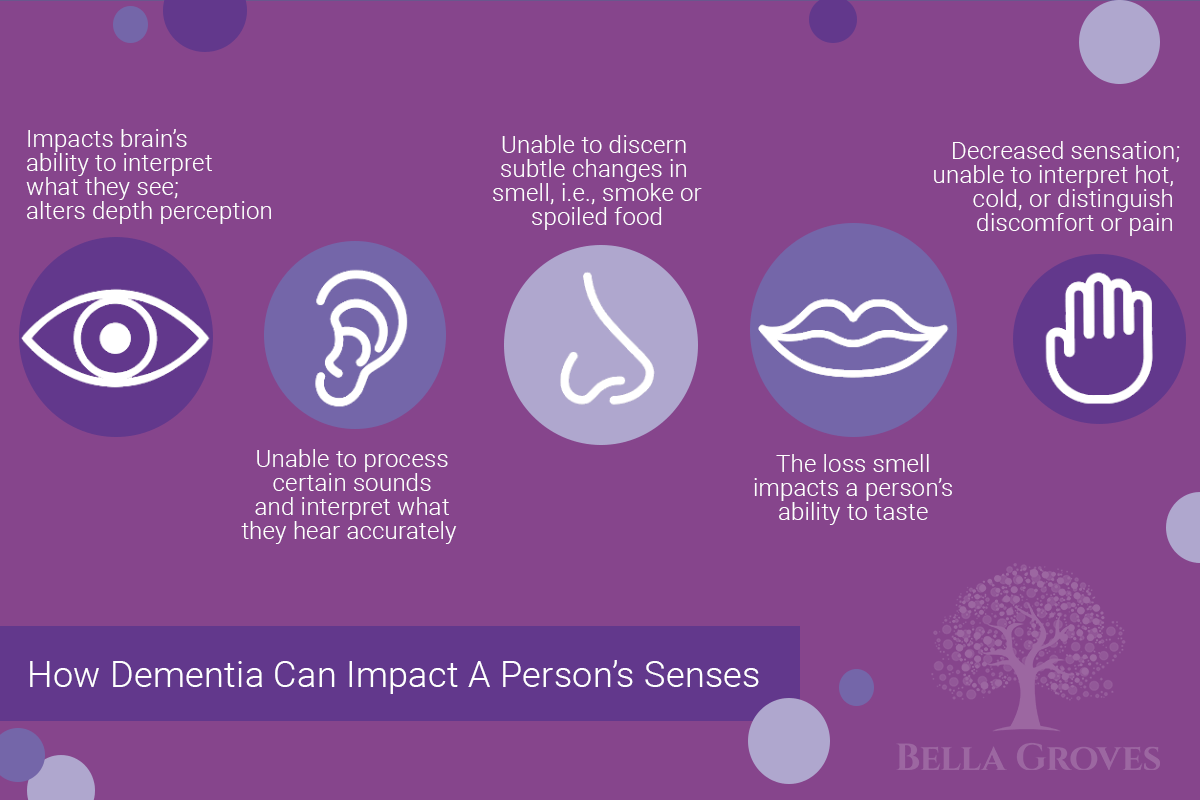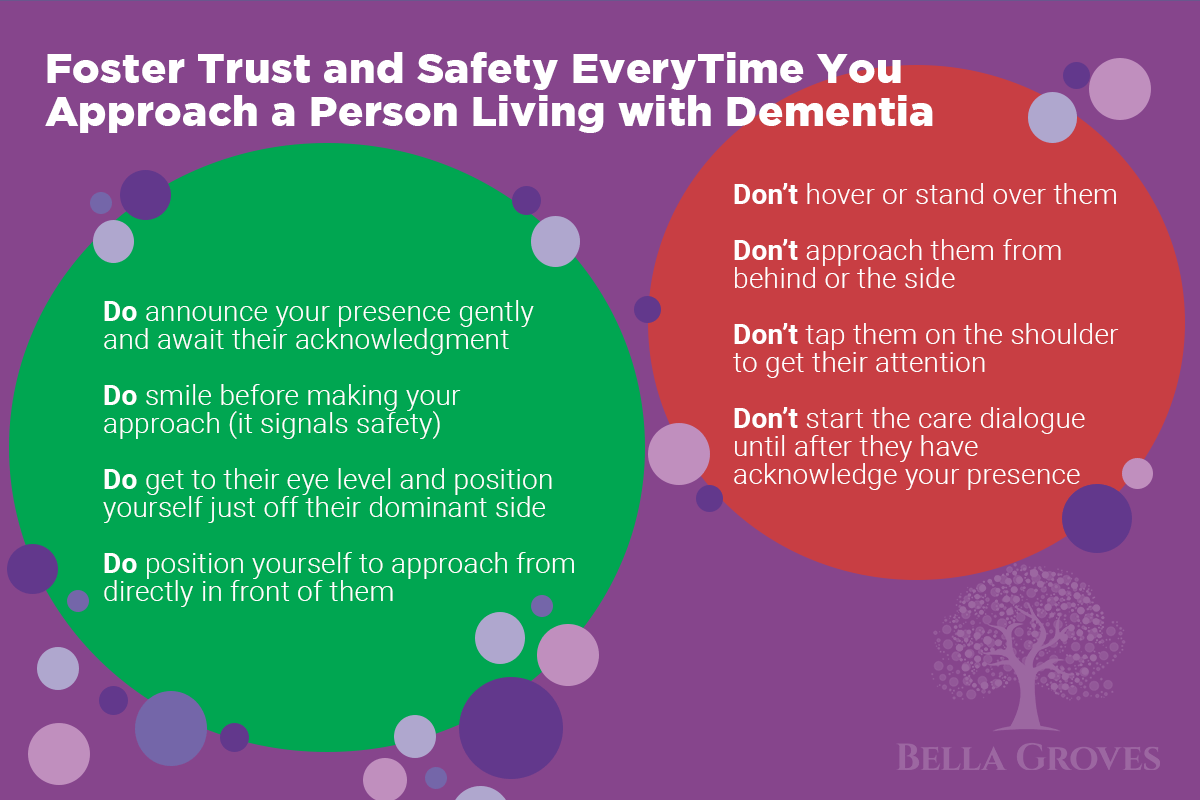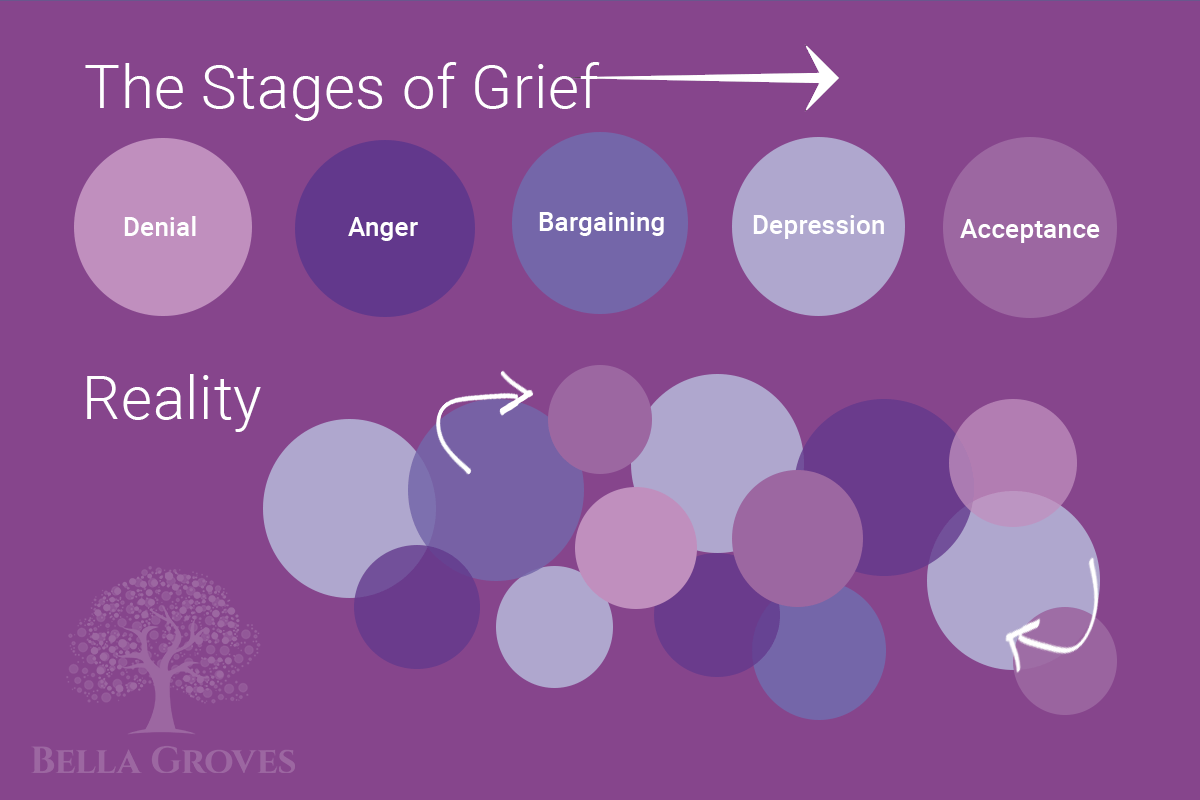
Dementia and Sensory Changes
When a person is diagnosed with dementia, many questions can arise regarding the changes one can expect in personality, behavior, and even physically. Mostly, the effects of dementia tend to be associated with cognitive function – memory, judgment, communication, etc. While dementia does affect the entire brain over time, it’s essential to understand that as parts of the brain slowly begin to decline, dementia can also impact a person’s five senses.
At Bella Groves, we want to provide dementia resources so that every individual, care partner, and family member can understand what happens during each step of dementia’s progression so that you can navigate these sensory changes with the necessary knowledge and understanding.
Sight & Field of Vision
Vision changes are considered a normal part of aging. Older adults might need reading glasses or seek out other sight aids to combat the natural loss or obstruction of vision.
However, a person with dementia may experience a change in their field of vision. For example, have you ever been immersed in an activity, and a friend or coworker taps you on your shoulder, startling you? Imagine this sensation over and over again, every day. Imagine further that your vision is impaired by 30% (no peripheral vision) or by 60% (only see things directly in front of you), or 80% (even things in the center of your vision are blurred). Now, compound that with the “fog” of dementia.
You may begin to see just how important it is for care partners always to be aware of a person living with dementia’s field of vision.
Fortunately, there are some ways to ensure that a person living with dementia doesn’t become frustrated or overly disoriented:
- Announce your presence gently and await their acknowledgment.
- Smile before you make your approach.
- Position yourself to approach directly in front of them.
- Get to their eye level and position yourself just off their dominant side (secondary position).
The move to the secondary position is just to the side of the center – preferably to their dominant side (whichever side and hand they eat/write with). Unfortunately, care partners often make the mistake of standing over the other person and inadvertently to their non-dominant side.
Why is this important? Imagine if you were in a strange and unfamiliar place and a very tall stranger stood over you on your non-dominant side. If there’s danger, you’re in a very vulnerable position.
However, imagine that same scenario, but the stranger approached from the front, announced their presence, awaited your acknowledgment, smiled, approached at a calm pace, and sat beside you. It happened to be your dominant side. If there’s danger, you’re in a much better position to defend yourself (or flee).
Moving to the secondary position would not be appropriate if the person is lying down, in which case, you are not moving to the position – you’re already there. If the person cannot move their head or neck safely, or if their hearing is particularly impaired in a way they can’t follow your voice, it may be better to remain (at eye level) directly in front of them.
Sensory Changes to Hearing
Hearing loss is another natural part of the aging process. However, when someone is living with dementia, it can often be less of a decline in hearing volume but rather a problem with processing certain sounds to accurately interpret what they’re hearing.
Not only can this be confusing, but extremely frightening. Think about it this way: the last time you watched a thriller or a horror movie, did you notice that certain disorienting sounds were carefully placed throughout the climaxes of the plot? While this is a clever trick filmmakers use to make their movies more intense, think about how unnerving it is to hear sounds you don’t fully comprehend or understand.
To prevent this type of disorientation as much as possible, try these tips:
- Keep the environment and living space as calm and quiet as possible. Avoid extra background noises, like the radio or the television playing at the same time.
- Pay attention to how the person reacts to noises; keep notes of outside noises that make them anxious or upset, and avoid situations where these feelings would be increased.
Changes to Touch
As dementia progresses, a person living with dementia can experience changes to their sense of touch. This could take form in several ways; a person might be unable to determine temperature, discomfort, or even pain.
- Make sure that hot and cold faucet taps are clearly labeled.
- Try implementing signs when an oven, kettle, or other appliances are turned on.
- Check the temperature of foods and drinks for your family member, as they might have trouble determining if it’s hot or cold.
Touch creates a sense of togetherness and closeness and helps people feel loved and safe. To make sure a person living with dementia feels comforted and connected:
- Give them objects like soft blankets, fuzzy bathrobes, or even plush stuffed animals so that they have personal items with comforting sensations.
- Use hugs, gentle shoulder touches, or even hand holding to communicate and show affection and support.
Changes to Taste & Taste Buds
Our taste buds are connected to our brain, so a person living with dementia may begin to experience changes in the way foods taste. For example, they might start disliking some of their favorite foods or suddenly enjoy foods they never liked in the past.
This can be difficult to navigate in several ways. For instance, a person might have been a lifelong vegetarian who starts to request meat during every meal. Or unhealthy and sugary foods may be the only foods they want or enjoy.
- Follow the person’s lead when they tell you what they want to eat. Despite past habits and beliefs regarding food, it’s important to respect their wishes and not make them feel judged unless the food combination could be potentially harmful to their health.
Dementia and Smell
A person with dementia might be unable to discern harmful odors, like natural gas or smoke from a fire. It can also be challenging to notice bad smells, for instance, garbage that has been sitting out for a while or food that has spoiled and gone bad.
- Keep the refrigerator and pantry organized and free of perishable items that have reached their expiration date.
- Make sure the home is equipped with working smoke and carbon monoxide detectors.
Bella Groves doesn’t just offer dementia resources to keep families educated and prepared; our Bulverde community also provides top-of-the-line residential care for those impacted by dementia. Our highly trained care team offers constant support, engaging activities, assistance with activities of daily living, and more to ensure that your loved one is experiencing joy in every aspect of their life.
You are not alone. Please call us or visit our website to learn more.


